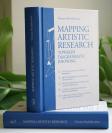

Re-Tooling Knowledge Infrastructures in a Nuclear Town is the result of five applied urbanist summer schools on the future of nuclear town of Visaginas, organized by the European Humanities University’s Laboratory of Critical Urbanism annually from 2016 to 2020. We look at space/society relations inherent in nuclear development in order to build a research and design scaffolding for nuclear towns after their productive phase. The book chapters describe and make sense of the process of city/industry disentanglements since the beginning of the decommissioning of the Ignalina Nuclear Power Plant, Visaginas core enterprise. The main spatial site that framed our work on Visaginas knowledge infrastructures relevant in 2015-2020 is the town’s public library as potentially a strategic institution and facility in the process of the disconnection between the INPP and the town. Although this work has resulted in concrete design proposals, the library building was only a starting point and a puzzle to identify and start re-tooling spatial and social connections within Visaginas knowledge and cultural sectors, as well as their relations to other forms of spatiality.
The book is co-authored by Johanna Betz, Benjamin Cope, Dalia Čiupailaitė, Oksana Denisenko, Lívia Gažová, Martynas Germanavičius, Bogdan Kapatsila, Mažvydas Karalius, Miodrag Kuč, Michal Lehečka, Siarhei Liubimau, Iryna Lunevich, Paul Marx, Till Mayer, Miriam Neßler, Monika Pentenrieder, Alla Pigalskaya, Thomas Rettig, and Andrei Stsiapanau.
Leidimo metai / Release date: 2021
Apimtis / Pages: 254 P
Viršeliai / Covers: minkšti / paperback
ISBN 9786094473562
Svoris: 520 G
Kaina / Price: 10,9 €
Dvikalbis (lietuvių – anglų) Ramintos Jūrėnaitės albumas apie Arūną Vaitkūną (1956–2005)
Written within a curatorial practice and post-doctoral fellowship, it opens up perspectives of artistic research for artists, curators, researchers in the social sciences and humanities, and wider audiences.
Tel. 8 5 279 10 15 (direkcija)
PVM mokėtojo kodas LT 100003222911
AB bankas „Swedbank“
A.s. LT35 7300 0100 0245 5757



